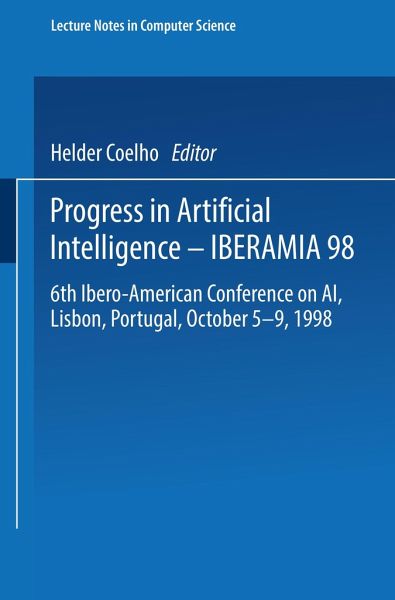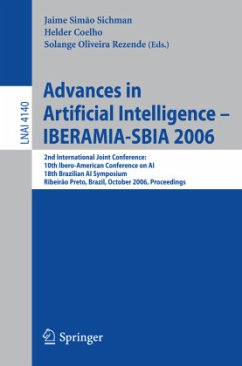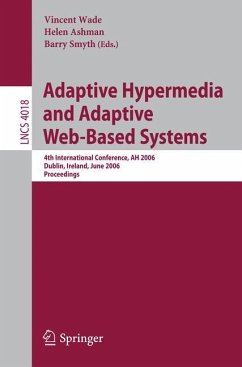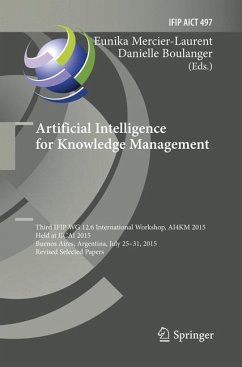
Progress in Artificial Intelligence - IBERAMIA 98
6th Ibero-American Conference on AI, Lisbon, Portugal, October 5-9, 1998 Proceedings
Mitwirkender: Coelho, Helder

PAYBACK Punkte
20 °P sammeln!
When in October 1996 in Cholula (Puebla, Mexico), I took charge of organizing the scienti?c program of the next Ibero-American Congress on Arti?cial Intel- gence (IBERAMIA 98) I bet on a couple of ideas. First, I adopted the spirit of the Portuguese adventurers to get the Sixth Congress on a truly international track. In order to attain this aim I needed to convince everybody that the Ibero- American AI community had improved over the years and attained a very good level in what concerns individuals. Second, I brought my colleagues beside me so that we were able to collect su?cient excellent p...
When in October 1996 in Cholula (Puebla, Mexico), I took charge of organizing the scienti?c program of the next Ibero-American Congress on Arti?cial Intel- gence (IBERAMIA 98) I bet on a couple of ideas. First, I adopted the spirit of the Portuguese adventurers to get the Sixth Congress on a truly international track. In order to attain this aim I needed to convince everybody that the Ibero- American AI community had improved over the years and attained a very good level in what concerns individuals. Second, I brought my colleagues beside me so that we were able to collect su?cient excellent papers without destroying the pioneering spirit of those who ?rst inaugurated the Congress. Getting together to ?nd out what is in progress in the vast region in which Latin languages (P- tuguese and Spanish) are spoken, attracting others to exchange ideas with us, and by doing this advancing AI in general, is a risky untertaking. This book is the result, and it sets a new standard to be discussed by all of us. IBERAMIA was established in 1988 (Barcelona) by three Ibero-American AI Associations (AEPIA from Spain, SMIA from Mexico, and APPIA from Por- gal), after a ?rst meeting in Morelia (Mexico) in 1986 of SMIA and AEPIA.














